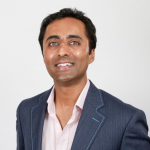 From unrealistic expectations to misinformation, Dr. Niro Sivathasan, International Director of Harley Academy, London, U.K. and aesthetic surgeon in Australia, on the realities of plastic surgery from a psychological standpoint, and the mental and emotional mindset necessary of both the patient and the physician.
From unrealistic expectations to misinformation, Dr. Niro Sivathasan, International Director of Harley Academy, London, U.K. and aesthetic surgeon in Australia, on the realities of plastic surgery from a psychological standpoint, and the mental and emotional mindset necessary of both the patient and the physician.
How do you manage your patients’ expectations? What must they understand before going under the knife? It is vital for the surgeon to understand the patient’s aims and lifestyle, reasons for wanting the particular surgery, and, indeed, how the patient currently views him/herself. I am very much of the opinion that a full and frank discussion must be had; it is the doctor’s role to discuss viable options to facilitate informed consent, and to help the patient make the decision that is correct for that particular individual. This includes the pros and cons (such as the risks) of the different choices, including not having anything done.
The doctor must necessarily ascertain if the patient has realistic expectations, and evaluation of the patient’s self-perception – be it excessively critical or overly flattering – is a key predictor as to the patient’s likely surgical journey and satisfaction with the end-result, noting that nothing may be absolutely guaranteed.
Additionally, during my consultations, I always try to gain insight into where my patients see themselves many years into the future, so that any surgery done today is still appropriate for times to come.
Do people make the mistake thinking one body part is the problem when really, it’s overall proportions? Very much so; aesthetics is dependent on proportions. For example, with breast augmentation, the curves of a woman’s waist, hips, and buttocks must be considered when deciding upon the volume and projection of an implant.
Also, the real issue may not be the issue that the patient ‘believes’ needs ‘fixing’. Beauty may even be viewed as having a mathematical basis, based on ‘The Golden Ratio’, but one must pay homage to beauty varying by ethnicity, cultures and societal norms. Our job is to guide patients in the correct direction
Are there such things as ‘just’ and ‘unjust’ reasons for getting cosmetic surgery? The days of harsh criticism for those undergoing cosmetic surgery are pretty much gone. Cosmetic surgery has been shown to improve the quality-of-life for patients, and this has a positively reinforcing effect in many areas. Additionally, contrary to popular belief, decisions to have cosmetic surgery by both men and women are usually their own, and not due to coercion by partners in the vast majority of cases.
People are living longer and expecting more, and should have a right to freedom-of-expression. They should be able to spend their money how they wish – after all, cosmetic surgery does not harm the general public.
Some arguments previously centred around whether the public purse is picking up the tab, but this is usually only for those who have been involved in trauma or disfiguring disease. For these people, restorative surgery can alleviate the psychological, and consequentially functional, morbidity that accompany.
One must not forget that cosmetic surgery is still surgery: it must not be trivialized; patients must do their homework, and go to doctors with whom they feel comfortable and have trust, and this extends to using accredited and well-equipped facilities, also.
Have you ever turned people down? What were your reasons for doing so? Yes, I have. Any ethical doctor shall, at some point, have to say ‘no’ a patient. Medicine’s underlying principle is to ‘do no harm’, and multiple facets, such as transparency, build upon this tenet. I have refused to treat patients where I have felt that the reasons for wanting the elective procedure are not in the patient’s best interests, whether due to the patient being unable to adequately consider the pros and the cons (i.e. lacking competence), due to an inability to have an accurate appraisal of themselves (i.e. having unreasonable expectations), due to their lifestyle, or just being a bad candidate for surgery. Regarding the latter points, patients must remember that doctors cannot work miracles, and if a doctor unfortunately cannot filter out such patients, the result may be disappointing for both sides; just as a patient must trust and like the doctor, the doctor must also feel comfortable interacting with the patient, and this becomes especially important where complications occur.
How do you ensure a surgeon is trained and qualified to perform the surgery? All doctors must be registered with the medical body overseeing the jurisdiction, for example, AHPRA in Australia, and GMC in Britain, but this does not mean that the doctor is competent at performing a particular surgical procedure. Trainee surgeons must rotate in different surgical specialties to gain an understanding in general patient management, general surgical principles, and to become au fait with the clinical anatomy of the human body; there is no substitute for breadth of experience.
Once a specialty is chosen, the doctor must get very conversant with relevant procedures, and this involves repetitive exposure – a critical number of procedures must be done for a surgeon to be competent at it. A weekend course does not, in my eyes, equip a new doctor with the skills to operate on patients. I should further add that allegedly same training programmes are ‘not’ equal, so it is up to the doctor to know his or her limits, and to get mentored or undertake higher fellowships in areas of interest. It is also implicit on all doctors to be consolidating and improving their knowledge by critiquing their outcomes, and by attending meetings and conferences; doctors never stop learning!
What questions should you ask them to make sure they’re someone you can trust? Trust is an interesting concept, and many would say that they have a ‘gut feeling’ about someone. Good communication fosters confidence, and personalities tend to gel that way. ‘Emotional value’ starts even before a patient meets a doctor, and can come, for example, from word-of-mouth referrals or the ‘about us’ section on a website. We must not forget that we are, first and foremost, humans, then physicians, and only then surgeons.
“We must not forget that we are, first and foremost, humans, then physicians, and only then surgeons.”
Medicine is an inexact science, so the doctor must equally be able to trust the patient to be truthful about his/her medical history, be compliant with instructions, and to be able to collaborate to drive successful outcomes. Trust is a two-way process; good outcomes are dependent on patients, as well!
Can cosmetic surgery turn into a vicious cycle? i.e. perfection is hard to attain! What are the signs? Yes, it may do. Much akin to people saying they become addicted to the tattooist’s needle, the same may happen in cosmetic surgery, so a surgeon should try to identify such patients. Warning signs for us include patients quickly adapting to their altered look and perpetually wanting more changes due to dissatisfaction.
Society must recognize that young people are under a lot of pressure from social media. To exacerbate this, as has been widely reported though still poorly acknowledged, most photos have been manipulated or ‘Photoshopped’; blemishes have been banished, eyes are more enticing, tummies are tighter, and brightness- and contrast- ratios are doctored to give skin a wonderful glow. This means that people feel they have to achieve such levels of ‘perfection’, and this can be a vicious cycle. A distorted sense of self can be to blame for this vicious cycle, but the good news is that there is increasing recognition of avoiding the ‘over-done’ look, and that perfection is impossible – we are human, after all!
A good sign for me is when individuals have insight into how impressionable they are to changing fashion trends. Voluptuous curves, a la Kim Kardashian’s, that are en vogue today, may be replaced by svelte looks, tomorrow.
Will cosmetic surgery make you feel more beautiful? Why is this a dangerous idea? This is an interesting concept that may be answered in many ways. Is beauty displayed on the outside or does it come from within? This very much depends on perspective, but it is absolutely correct to say that happiness and confidence on the inside do interact with how we believe others perceive us when they meet us; external appearance is recognized as positively correlating with ‘perception of health’ in humans. This is a feedback loop, and may explain why those that go to a fancy restaurant in a nice car, dressed in Armani, feel more confident and then have higher magnetism during their interactions.
Whilst beauty has objective and subjective elements, the aim of cosmetic surgery is to enhance someone’s physical appearance. This may make people more confident in their own bodies from a societally desired perspective, but they may ‘not’ feel more beautiful deep down, particularly if they have distorted views of themselves. The danger for this group of people is that they are vulnerable, request more procedures, and, in addition to exposing themselves to more risks, usually look overdone at the end.
How many consultations would you recommend before going ahead with the procedure? As many as required. Patients are individuals, and one size does not fit all. It would be foolish for the patient to agree to a procedure if s/he has not adequately considered it, and it would be inappropriate for a doctor to agree to a procedure, especially an elective one, where the patient has not demonstrated competence and understanding, particularly of the risks. From a doctor’s perspective, these consultations do not have to be free-of-charge. It may be appropriate and/or necessary to get another opinion.
Would you recommend your patients speak to a therapist or psychologist beforehand? Again, one size does not fit all. The vast majority of patients seeking cosmetic surgery do not require psychological assessment, but there are those whom need evaluation to fathom their reasons for wanting surgery and how they view themselves at present. Surgeons should always bear in the backs of their minds that a significant number of patients have body dysmorphia (also known as BDM or body dysmorphic disorder), and must also aim to confirm that a patient wants to go under the knife for the correct and considered reason(s).
How do you know that someone has thought it through and is ready? The doctor’s experience and emotional quotient are pivotal. It may be possible for a doctor to get this wrong, particularly when confronted by a very enthusiastically convincing patient, but recognizing a patient’s non-verbal communication and a patient’s self-honesty would help mitigate against going with the flow. If in doubt, the patient should be referred for a second opinion, in part to ensure the patient is adequately informed.
Do you think reality TV has warped peoples’ expectations and understanding of cosmetic surgery? Are there common misconceptions? Most definitely. Cosmetic surgery does bridge medicine and consumerism, but my biggest concern is that people are increasingly blasé about the potential risks involved with surgery. Things can, of course, not go as planned, even in an experienced surgeon’s hands, but patients must not dismiss their own responsibility. It is simply unacceptable for a patient to ignore post-operative instructions, and to take a ‘it won’t happen to me’ attitude, as the result is most likely to be disappointing for all stakeholders. Part of the problem here is that patients see celebrities before and after the procedures, and are not privy to the stresses of the healing phase.
I always spend a good amount of time impressing upon my patients the significance of post-operative compliance and discipline on their part, and this includes explaining that a period of pain and fatigue may result in increased emotional distress. If appropriate, I also discuss how the Internet has self-professed experts stating their unsubstantiated beliefs as gospel, and explain that though cosmetic surgery is so widespread, misconceptions remain quite prevalent and varied.
It may be necessary to explain to patients that others’ reactions cannot be controlled, and that decisions for body-altering surgery must not be taken lightly. I have heard stories where co-workers have perceived the ‘changed’ individual as vain and even threatening, resulting in undeserved workplace distress subsequent to the medical intervention.
What type of emotional support does a person need post-surgery? This depends on the type of surgery and the individual; some procedures require more assistance from friends and family, than others, and some patients require more TLC, also. Many patients choosing cosmetic surgery are unlikely to have previously had surgery, and are likely to have feelings of anxiety evolving around parameters and tolerances unknown to them. Patients need to be able to access care, information, and reassurance, and this is where a good team of post-operative nurses really comes into its own. As cosmetic surgery may bring up emotions in patients that were never thought to exist, it is always a nice thing for patients to have somebody close, who is there for the whole duration of the process, i.e. from the initial consultation all the way to the end of their journey.
 Dr. Niroshan Sivathasan BSc (Hons), MB, BS (Lond), DRCOG, GradDipAesthMed (UK), PGCert BA, MRCS (Eng), AFACP, FCPCA. Board Certified (AAAM) in Aesthetic Medicine.
Dr. Niroshan Sivathasan BSc (Hons), MB, BS (Lond), DRCOG, GradDipAesthMed (UK), PGCert BA, MRCS (Eng), AFACP, FCPCA. Board Certified (AAAM) in Aesthetic Medicine.
Dr. Niro Sivathasan is an experienced, internationally licensed, aesthetic surgeon. He completed his bachelor’s and medical degrees from King’s College London and University College London, respectively. His postgraduate qualifications in surgery and aesthetic medicine were also gained in England, with rotations across numerous prestigious teaching hospitals in London and postgraduate training with The Royal College of Surgeons of England, prior to moving to Australia to pursue a higher fellowship in cosmetic surgery to build upon his training in plastic surgery.
In addition to his surgical work in cosmetic and restorative surgery, Dr. Niro has a particular interest in non- and minimally- invasive aesthetics of the face and trunk, and is a senior trainer for the pharmaceutical and medical devices industries.
Dr. Niro has experience performing surgeries in a number of countries, and has published over 35 medical articles, written book chapters, international educational guides, spoken at conferences around the world, is a reviewer and editorial committee-member for various medical journals, and presides as an expert for various organizations covering non-surgical medical treatments.


